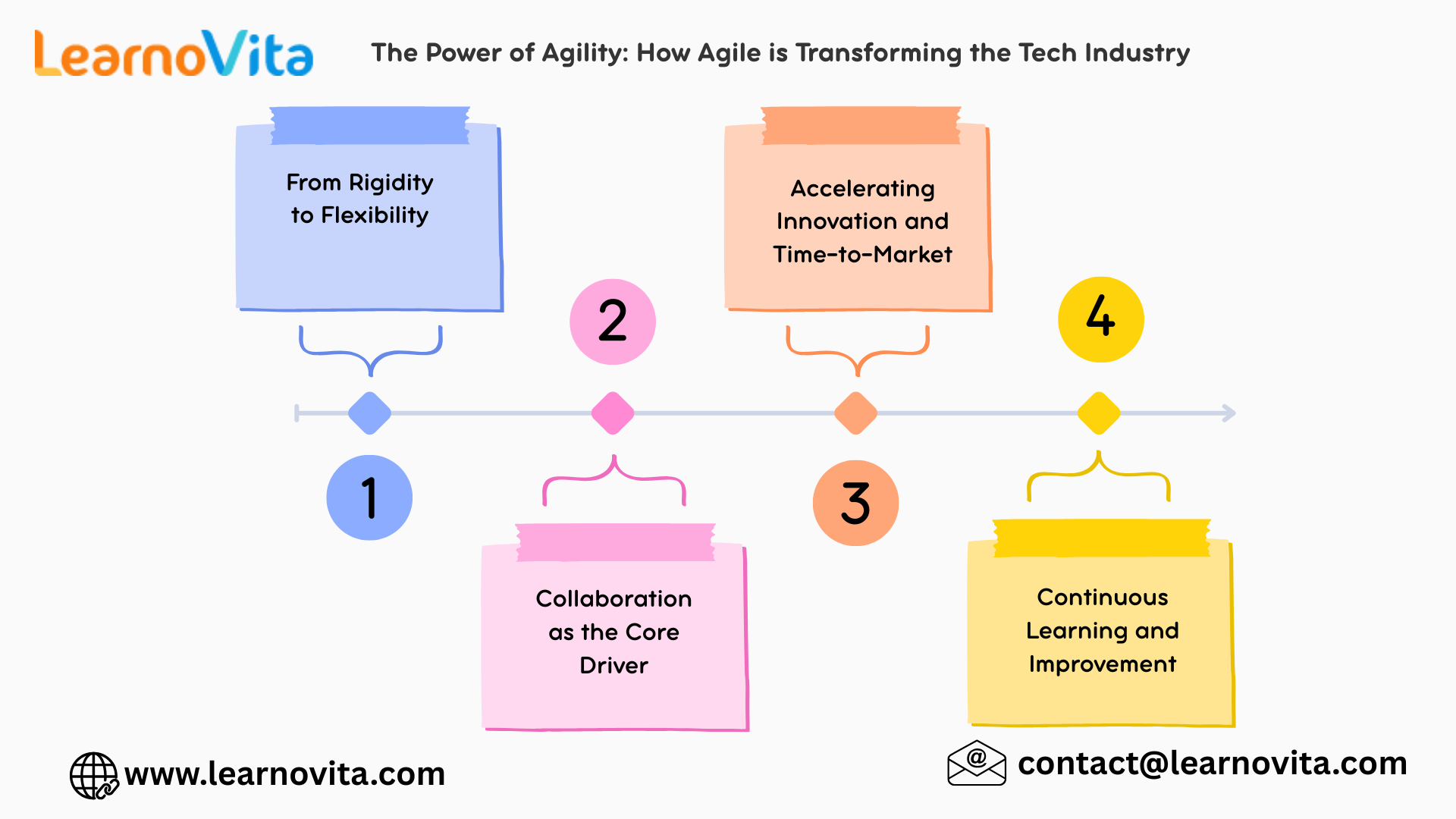The tech industry is evolving at an unprecedented pace. Emerging technologies, shifting customer expectations, and market disruptions are now the norm. To stay competitive, organizations must not only innovate but also adapt quickly. That’s where Agile Online Course comes in a transformative approach that has redefined how technology companies plan, build, and deliver solutions.
1. From Rigid Plans to Adaptive Progress
For years, traditional project management models like Waterfall dominated software development. They relied on sequential planning each phase completed before the next began. While structured, this approach often struggled to handle change. Projects took months or years, and by the time they were finished, the needs of users or the market had already evolved. Agile turned this model upside down. By breaking work into short, focused sprints, Agile allows teams to build, test, and adapt continuously. Feedback is gathered early and often, ensuring that every update aligns with user expectations. This flexibility enables faster releases, fewer bottlenecks, and products that evolve alongside technology itself.
2. Collaboration as the Driving Force
Agile thrives on teamwork and transparency. Instead of isolated departments and long approval chains, Agile brings developers, testers, designers, and product owners together into collaborative, cross-functional teams. Daily stand-ups, sprint reviews, and retrospectives keep everyone aligned and accountable. This open communication creates a shared understanding of goals, challenges, and progress. When teams work collectively and adapt in real time, they not only move faster but also produce more innovative and user-focused solutions.

3. Innovation Through Iteration
In today’s tech landscape, success often depends on how quickly an idea can move from concept to market. Agile enables organizations to innovate at speed by emphasizing small, iterative releases instead of massive, one-time launches. Leading companies like Google, Amazon, and Spotify have embraced Agile to accelerate innovation. Spotify’s “squad” model, for example, empowers small, autonomous teams to experiment freely and release updates continuously. This Software Training Institute decentralized approach fuels creativity while maintaining alignment with broader business objectives a balance that defines modern agility.
4. Building a Culture of Continuous Improvement
Agile is more than just a methodology it’s a mindset centered on growth and adaptability. After every sprint, teams reflect on what worked well, what didn’t, and what can be improved. This constant feedback loop fosters a culture of learning and resilience, allowing organizations to evolve with every project. Rather than fearing change, Agile teams embrace it. They understand that each iteration is an opportunity to get better to deliver higher quality, greater value, and deeper customer satisfaction.
Conclusion
Agile has fundamentally transformed the tech industry by replacing rigidity with flexibility, silos with collaboration, and slow development cycles with rapid innovation. It empowers teams to adapt swiftly, respond to change confidently, and deliver meaningful results continuously. In an ever-changing digital world, Agile isn’t just a framework it’s the mindset driving the tech industry forward: faster, smarter, and more resilient than ever.


